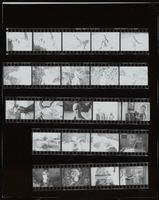Search the Special Collections and Archives Portal
Search Results
Voices from the Past: the Las Vegas Springs Preserve Oral History Project Interviews
Identifier
Abstract
The Voices from the Past: The Las Vegas Springs Preserve Oral History Project consists of nine interviews conducted by Joe Thompson in 2002 with community members, field experts, and politicians involved in the creation of the Springs Preserve, which opened in 2007. Interviewees include Claude and Liz Warren, John Mendoza, Richard Bryan, and others. Digital audio available; no transcripts available.
Archival Collection
Nevada Test Site Oral History Project interview, 2010
Level of Description
Archival Collection
Collection Name: Alice P. Broudy Papers on Broudy v. United States
Box/Folder: Box 95
Archival Component
African Americans in Las Vegas: a Collaborative Oral History Project Town Hall Meeting
Identifier
Abstract
Town hall meeting for the African Americans in Las Vegas: a Collaborative Oral History Project facilitated by Claytee D. White on May 11, 2013. In this town hall, White explains the mission and the purpose behind the African Americans in Las Vegas: a Collaborative Oral History Project. Attendees also speak, telling stories and histories of the African American people and communities in Las Vegas, Nevada.
Archival Collection
Las Vegas Strip, Las Vegas, Nevada, 1976 December 22
Level of Description
Archival Collection
Collection Name: North Las Vegas Library Photograph Collection on North Las Vegas, Nevada
Box/Folder: Folder 27
Archival Component
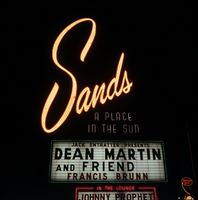
Film transparency of the marquee for the Sands Hotel, Las Vegas, January 22, 1964
Date
Archival Collection
Description
Color transparency of the Sands Hotel marquee advertising "Dean Martin and Friend Francis Brunn" from January 22, 1964.
Image
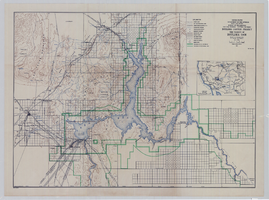
Topographic map of Boulder Canyon Project, Boulder Dam area, 1940
Date
Description
Image
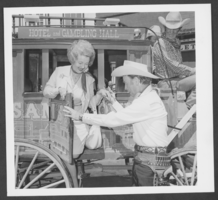
Photograph of Roy Rogers, Las Vegas, August 22, 1980
Date
Archival Collection
Description
Image
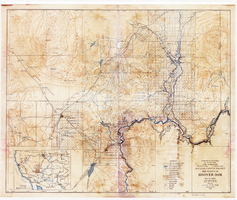
Topographic map of Boulder Canyon Project, Hoover Dam area, 1932
Date
Description
Image
African Americans in Las Vegas: a Collaborative Oral History Project event roundtable
Identifier
Abstract
African Americans in Las Vegas: a Collaborative Oral History Project event roundtable conducted by Claytee D. White on January 18, 2014 for the African Americans in Las Vegas: a Collaborative Oral History Project. In this panel event, Jean Childs, Joe Neal, Jackie Brantley, LaVerne Ligon, and Ramon Savoy discuss their early lives and explain how they arrived to Las Vegas, Nevada. Childs talks about her father’s business, the Penguin Club, and the history of African Americans in the gaming industry. She talks about her involvement with the Economic Opportunity Board (EOB) and the Head Sstart federal program. Savoy remembers the foundation of
Archival Collection

